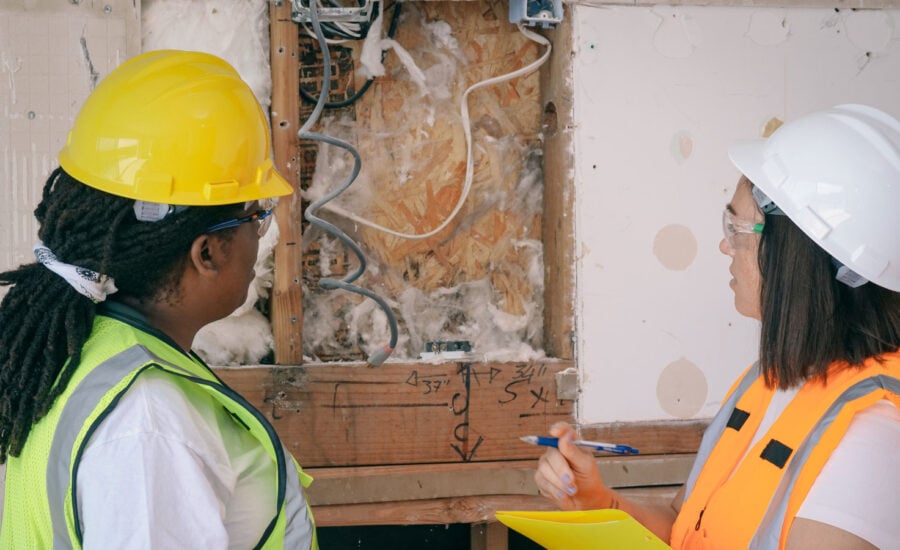Are home renovations tax deductible in Canada?
Doing home renovations? Find out if there are any tax incentives that Canadians are able to claim.
Advertisement
Doing home renovations? Find out if there are any tax incentives that Canadians are able to claim.

We are upgrading our electrical and removing an oil furnace and wood furnace. We are replacing them with a ducted heat pump. So, the question is will we get any tax break where it’s done for home improvement?
—Joan
Depending on where you live, Joan, there may be a program that provides incentives or grants for green home renovations. Some renovations can be claimed on your tax return as well.
The Canada Greener Homes Loan provides up to $40,000 of interest-free financing to improve a home’s energy efficiency. Loans can range from $5,000 to $40,000 and are amortized over 10 years. According to the federal government, eligible retrofits include:
In order to qualify, you must own the home as your primary residence and obtain a pre-retrofit evaluation. You must also have a good credit history, so cannot be in a consumer proposal, an orderly payment of debt program, or a bankruptcy or insolvency proceeding.
You can apply for a Canada Greener Homes Loan here.
This program may be applicable for you, Joan. It provides up to $10,000 to convert your oil heating to a heat pump. If you live in Nova Scotia, Newfoundland and Labrador, or Prince Edward Island, the rebate is up to $15,000.
There is a catch, though. Your household income needs to be below the median after-tax household income for your province based on your household size. Read the details from Natural Resources Canada.
Quebec residents can participate in the Rénoclimat program.
Nova Scotia residents can participate in the Home Energy Assessment program.
There are many renovation and improvement tax credits. Some are applicable, and some are not. Here’s a breakdown:
I still get questions about the Federal Home Renovation Tax Credit, which was only available for a single year back in 2009. This was an extremely broad tax credit for all renovations done to your home with virtually no criteria. It’s not relevant to you right now, Joan.
There is a Federal Home Accessibility Tax Credit that was introduced in 2016 for those over age 65 or who qualify for the disability tax credit. Renovations of up to $10,000 ($20,000 starting with the 2022 tax year) that improve accessibility or reduce the risk of harm within a home generally qualify. These expenses may also qualify for a medical expense tax credit.
The 2022 federal budget introduced a Multigenerational Home Renovation Tax Credit for up to $50,000 of renovations for adding a secondary unit to a home for an immediate or extended family member. The credit took effect on Jan. 1, 2023.
There is also a GST/HST New Housing Rebate and provincial new housing rebates for substantial renovations where more than 90% of a home is renovated. This generally requires that all or substantially all of the interior of a building, other than structural components, are removed or replaced. The rebate depends on the value of the home and the province where it is located.
Repairs and renovations can also provide tax savings each year for a rental property. They may be eligible to claim as current (tax-deductible) expenses or depreciated over time as capital expenses. Renovations also reduce the eventual capital gains tax payable for the sale of a rental property, cottage or a property used for a business. This may or may not be of interest to you, Joan.
In summary, Joan, your renovation may not be eligible to claim on your tax return. But it may qualify for a Canada Greener Homes Loan or the Oil to Heat Pump Affordability Program. If you live in Quebec or Nova Scotia, their provincial programs may also apply.
Share this article Share on Facebook Share on Twitter Share on Linkedin Share on Reddit Share on Email
I am senior (81) can I claim my propane furnace, electric hot water tank,water softener on my income tax as they were oil before I changed over.
Due to the large volume of comments we receive, we regret that we are unable to respond directly to each one. We invite you to email your question to [email protected], where it will be considered for a future response by one of our expert columnists. For personal advice, we suggest consulting with your financial institution or a qualified advisor.